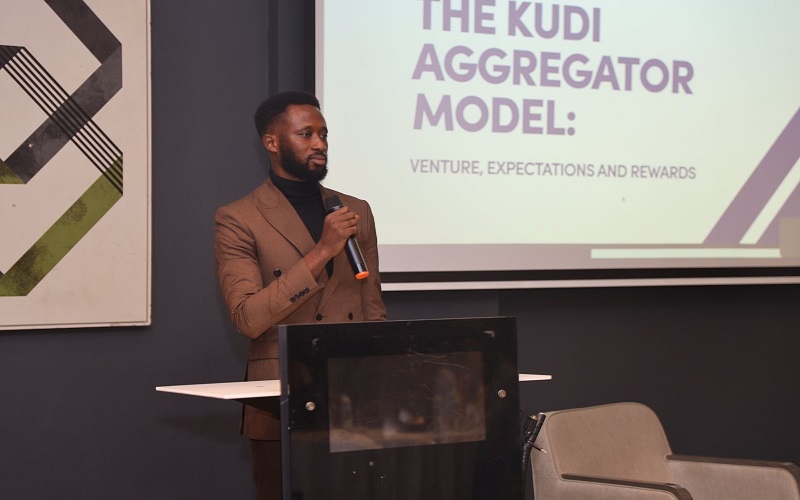By Henry BANKOLE
In 2022, Nigeria’s fintech sector experienced a significant surge in mobile transactions, with the Nigeria Inter-Bank Settlement System (NIBSS) reporting a 153% year-on-year increase to ₦12.8 trillion in the first nine months.
This rapid growth, while indicative of a thriving digital economy, also heightened the risk of operational challenges, notably double disbursements, instances where a single transaction results in multiple unintended payments.
Problem Scope
Although specific data on double disbursement losses in Nigeria remains scarce, global trends provide valuable context. In 2022, payment processing errors, including duplicate payments, accounted for $118 billion in losses worldwide. In Nigeria, where over 200 fintech companies process millions of transactions daily, the implications of even a 0.1% error rate can be financially staggering.
For example, a system handling 1 million transactions monthly with an average transaction value of ₦50,000 would risk losses exceeding ₦50 million monthly due to double disbursement.
Understanding Double Disbursement
The causes of double disbursement are varied, often involving a combination of system glitches, network failures, human errors, and, in some cases, insider fraud. In many instances, technical failures within a payment platform’s infrastructure lead to concurrency issues, where multiple payment requests are processed simultaneously due to poor transaction-handling mechanisms.
As Nigeria’s digital payment ecosystem continues to expand, the need for robust, AI-powered solutions to prevent double disbursement is more pressing than ever.
Henry Bankole
Failed transaction retries further compound the problem, as fintech platforms attempting to reprocess failed payments may unknowingly execute the same transaction multiple times. Additionally, data synchronisation failures across banking databases can result in a transaction being duplicated when reconciliation occurs, particularly when real-time updates are not effectively implemented.
The role of Nigeria’s payment infrastructure in mitigating this issue cannot be overlooked. Many fintechs rely on internet-based services to execute financial transactions, and unstable network conditions can sometimes lead to unintended retries, particularly when a transaction request does not receive a timely acknowledgment. Payment processing delays from intermediaries like the Nigeria Inter-Bank Settlement System (NIBSS) also contribute to the challenge. When a payment switch fails to promptly confirm a transaction, some systems may interpret the delay as a failed request, leading to duplicate processing.
Human and operational errors further complicate the situation. Manual data entry mistakes, especially in firms that still rely on human operators for certain transactions, can lead to payment duplication. Batch processing systems, often used for salary disbursements, refunds, or bulk transactions, are also susceptible to errors when reconciliation mechanisms are inadequate. If duplicate transactions are not flagged before funds are sent out, the fintech firm is left scrambling to recall the money, often with little to no success.
Once funds are sent to a beneficiary’s account, retrieving them requires the cooperation of multiple parties, including the recipient’s bank and, in some cases, the recipient themselves. The longer the delay in detecting the error, the harder it becomes to recover the funds, especially if the recipient has already withdrawn or transferred the excess amount.
Despite the severity of the problem, many fintech platforms in Nigeria still rely on outdated, rule-based fraud detection methods that are often reactive rather than proactive. Traditional systems mostly flag duplicate transactions after they have occurred, making it difficult to prevent financial losses before they escalate.
AI as a Potential Solution
One of AI’s strengths lies in its ability to analyse vast amounts of transactional data in real time, identify patterns, and detect anomalies before errors occur unlike conventional rule-based fraud detection. AI systems can analyse historical transaction patterns and use predictive modeling to flag payments that appear unusual. This is particularly useful in cases where system glitches or network failures might trigger unintended retries.
Many fintechs rely on internet-based services to execute financial transactions, and unstable network conditions can sometimes lead to unintended retries, particularly when a transaction request does not receive a timely acknowledgment.
Henry Bankole
Another common and, in my opinion, ‘systemic’ cause of double disbursement is Nigeria’s persistent internet instability. By integrating AI into network monitoring and error handling, we can significantly reduce the chances of double disbursement caused by these connectivity issues. AI models have also proven to be useful in assessing internet stability in real-time through predictive analytics by identifying potential network disruptions before transactions are executed.
This allows fintech platforms to delay or reroute transactions to ensure they are processed under optimal conditions, rather than risking failures that could lead to unintended retries. Reinforcement learning algorithms can also be applied to automatically adjust retry mechanisms, preventing unnecessary transaction duplications when a payment is initially unsuccessful.
Beyond error prevention, AI can also enhance fraud detection by analysing behavioural patterns in real time. Insider fraud and social engineering attacks, which contribute to double disbursement in some cases, can be mitigated through AI-powered behavioral analytics. By continuously monitoring employee and customer interactions with payment systems, AI models can detect suspicious activities and flag them for review before fraudulent transactions are processed.
As Nigeria’s digital payment ecosystem continues to expand, the need for robust, AI-powered solutions to prevent double disbursement is more pressing than ever. The financial and reputational costs of recurring errors make it important for fintech platforms to invest in AI-driven fraud prevention and transaction monitoring technologies.
Ultimately, the future of our fintech sector depends on the ability of industry players to leverage cutting-edge technology to mitigate risks and enhance operational efficiency. AI is not just a tool for improving accuracy in financial transactions, it is an essential component of building a more secure, reliable, and globally competitive digital payments ecosystem. The fintech firms that embrace AI-driven solutions today will be the ones that set the standard for innovation and trust in Nigeria’s financial services sector tomorrow.

